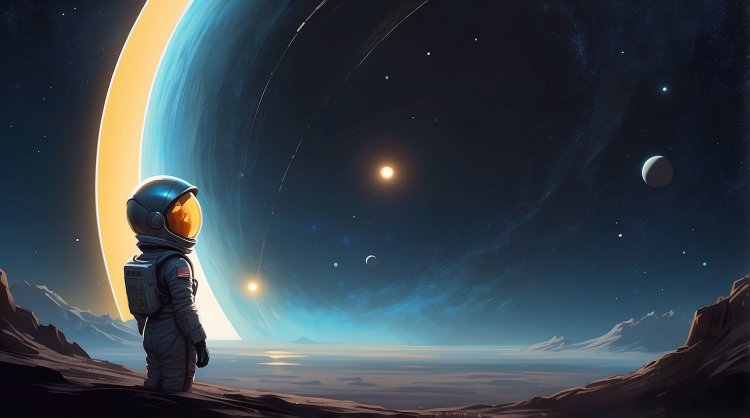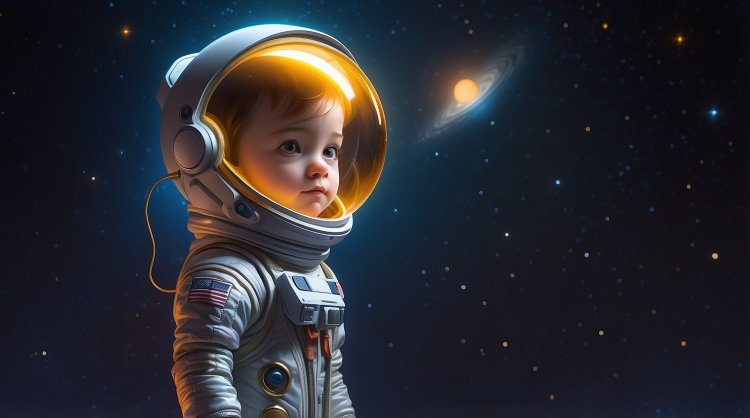Voyager – The Traveler Beyond the System
Star Max explores the spacecraft "Voyager," which has left the Solar System and continues its journey into the depths of space. Max explains how this journey helps humanity learn about the farthest corners of the Universe.

The spacecraft "Astrolot" continued its journey through the boundless space. On board was Star Max — an explorer seeking answers to the most important questions about the universe. His faithful companion, the robot Astrobot, was always nearby, ready to help decipher the complex phenomena of space.
— Max, we are on our way to the "Voyager," — said Astrobot, pointing at the screen. — This is a spacecraft that was launched in 1977. It left the Solar System and is now traveling into deep space, exploring new territories.
Max looked at the screen with interest: — The "Voyager" is so far from us! It’s been traveling through space for almost 50 years. But what exactly is it studying, and what discoveries might be made?

As "Astrolot" approached the "Voyager," Max and Astrobot began to receive the first data about its mission. The spacecraft was originally sent to study gas giants like Jupiter and Saturn, as well as the distant parts of the Solar System. But its mission didn’t stop there — the "Voyager" continues to send unique information about space that no one had ever explored before.
— This is truly an amazing journey, — said Max, watching the data. — We’ve heard so much about discovered worlds, but now, thanks to the "Voyager," we have the unique opportunity to see these places with our own eyes!
— That’s right, Max, — replied Astrobot. — The "Voyager" paved the way to unknown corners of space and even managed to send back images from nearby planets. But the most amazing thing is that the spacecraft continues to gather data about interstellar space. It has essentially become the first human messenger beyond our Solar System.
Max thought for a moment, imagining how the "Voyager" was racing endlessly into a space that had never been explored. He wrote in his journal: "Now that the 'Voyager' has left the Solar System, it has become humanity's cosmic envoy. Its journey into deep space will continue for many decades, transmitting valuable data for future generations."

— So the "Voyager" is gathering data about what lies beyond the Solar System, — said Max. — It’s incredible that we can explore such distant corners of space, even without being physically there. This journey could last for many decades!
Astrobot agreed: — Exactly. This isn’t just a journey to the farthest reaches of space, it’s a true discovery. The "Voyager" is helping us learn about what lies beyond what we can see and giving us a broader understanding of how our world fits into the larger cosmos.
Max continued to watch the screen, thinking about how each new step in space opened up new horizons. He was certain that the "Voyager" would reveal to humanity many secrets that lay far beyond the bounds of the Solar System.
— This journey into new, unexplored space, — said Max. — It will leave a lasting mark in the history of humanity. The "Voyager" has become a symbol of our thirst for knowledge, showing that nothing is impossible if we believe in our research and our ambitions.

As "Astrolot" continued its journey, Max realized that the "Voyager’s" mission was not just a journey through space, but a step into the future. It’s important to remember that every exploration leaves a mark and helps humanity move forward by discovering new worlds and expanding our horizons.
Max wrote another thought in his journal: "Every journey leaves a mark in history, even when it seems complete. It’s like the path of the 'Voyager,' which continues to open new horizons for us, even from such a vast distance."
What's Your Reaction?




















